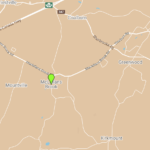The early-season wildfires in Nova Scotia this spring were a real wake-up call. With wildfires happening more often and getting fiercer, it’s important to keep an eye on your surroundings, especially if you live near or in a forested area.
| Wildfire | Location | Area Burned (Approx.) |
|---|---|---|
| Seven Mile Lake Fire 2016 | Annapolis County | 7,500 hectares |
| Maitland Mountain Fire 2017 | Hants County | 500 hectares |
| Porters Lake Fire 2019 | Halifax Regional Municipality | 1,225 hectares |
| Corbett Lake Fire 2019 | Cape Breton Regional Municipality | 520 hectares |
| Bayers Lake Fire 2020 | Halifax Regional Municipality | 10 hectares |
Here are some easy steps you can take to help protect your home:
- Tackle the yard:
- Get rid of any natural stuff that can catch fire on your property regularly.
- Rake up those leaves and clear out dead branches and debris.
- Mow the lawn and prune any dead limbs hanging from trees or shrubs.
- Store things smartly:
- Don’t leave flammable patio furniture and cushions hanging around on your deck or porch. Stick them in a detached garage or shed when you’re not using them.
- If you’ve got propane barbecue tanks, make sure you keep them as far away from your house as possible. And never stack firewood against your house. Besides being perfect fuel for a wildfire, it’s like an open invitation for insects to move in next to you.
- Up your home game:
- If you’re building or renovating in a fire-prone area, pick materials that can handle the heat. Think metal roofing, masonry walls, or fiber cement board for the siding.
- Go for triple-paned windows and fire-rated exterior doors to keep those flames out of your home.
- When it comes to decks, consider using non-combustible composite materials. And if you’ve got a wooden fence, make sure there’s at least a 1.5-meter gap or use non-flammable stuff like gravel, river rock, or patio stones between it and the house.
- Be ready to evacuate:
- Stay tuned to what the local emergency services are saying about evacuation orders.
- Keep your car fueled up and parked facing the street, just in case you need to make a quick getaway.
- Have an emergency bag ready with all the essentials: cash, passports, insurance info, meds, non-perishable food, water, a flashlight, and a first-aid kit.
- And before you hit the road, don’t forget to close all windows and doors, and turn off the propane or natural gas supply.



